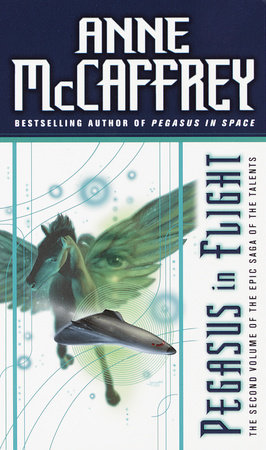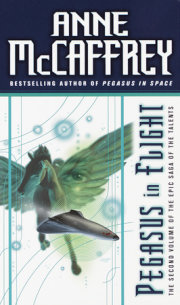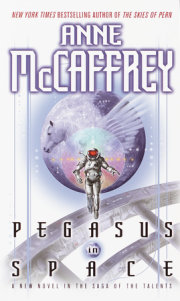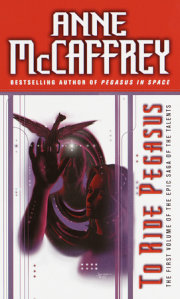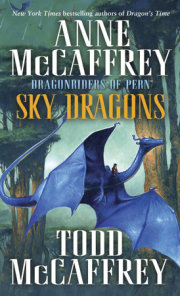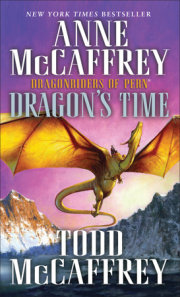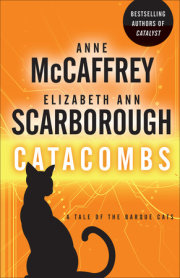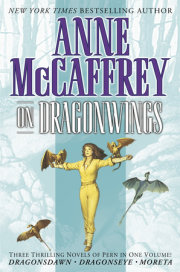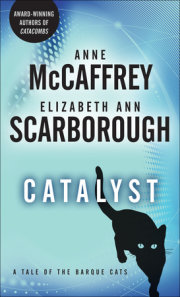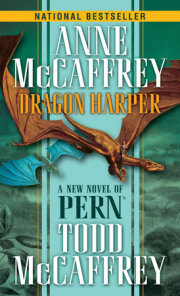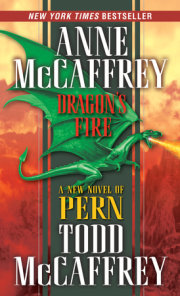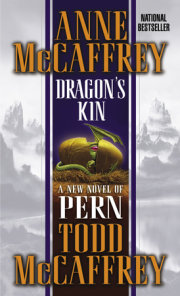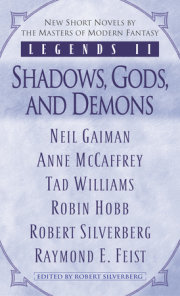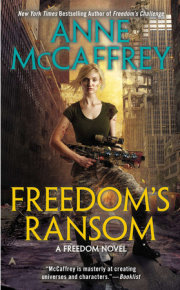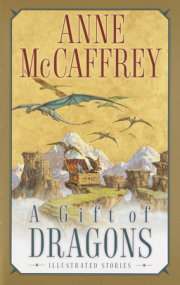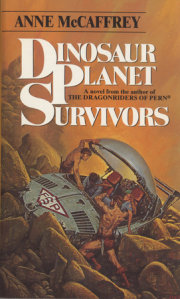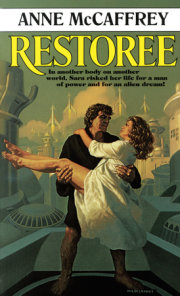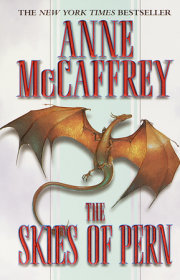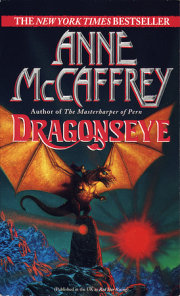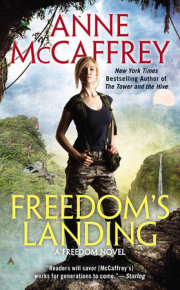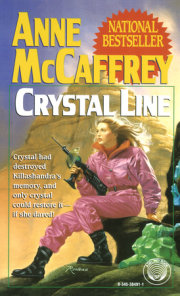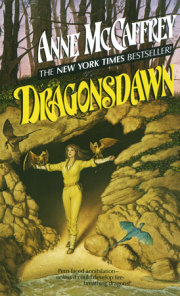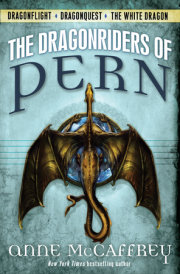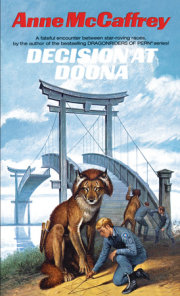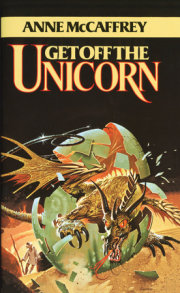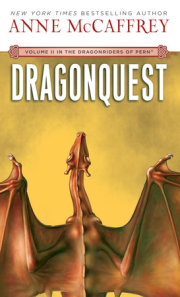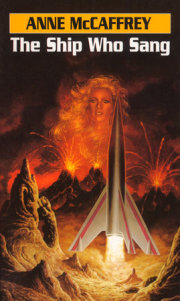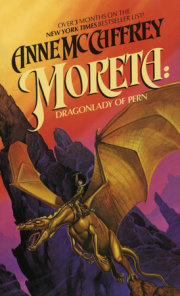They have been at a great feast of
languages, and stolen the scraps.
—William Shakespeare.
CHAPTER 1
Tirla took a quick look from the alley into the Main Concourse of Residential Linear G, then pulled back instantly, flattening her thin twelve-year-old body against the plas-slab wall. Public Health officials were swarming all over, rounding up the early-morning crowd of able-bodied workers who had been scanning the employment board for a day’s work, the mothers with their handicapped kids making their way to the Rehab centers, and the legal children on their way to the Linear’s physical-training facility.
Cautiously she took another look, to see what the PHOs were setting up on their tables: vials and the big compressed-air bottles that operated the hyposprays. She withdrew, having seen enough to recognize another wholesale vaccination effort. Strange, she hadn’t heard of any new ‘mune plagues. To give them their due, PHO was swifter than rumor to avert disaster.
Rapidly Tirla ran through her head her current list of those mothers of illegal children whom she should inform: first, because they would pay her for warning them to hide the kids; second, because those who could afford to would pay her for stealing whatever vaccine was being administered. She counted on her fingers: Elpidia, certainly; the old bouzma, Pilau; Bilala, and Zaveta, Ari-san, and Cyoto—and she had better ask Mama Bobchik if there were newborns, for they would need the Five-shotter. She would want one for herself, as well, and could possibly finagle a box, depending on how the current stuff was packaged. It all depended. Mirda Khan, yes—she had best tell that old wagon right after she warned Mama.
She would have to change into clean clothing issue—she had washed, but this week’s issue was five days old and looked eight. Public Health were quick to notice details like that. Mama Bobchik was always good for fresh wear, especially if Tirla went to her first with her news. This could be a very good day, Tirla thought with a rise of spirits as she slipped back down the alley for the center-shaft emergency stairs on her way down to Mama Bobchik’s pad.
Most of Tirla’s twelve years had been spent in scrounging a totally unofficial living in the multi-ethnic thirty-storied community of the Linears. She could not afford to miss a single trick, like today’s unexpected Public Health roundup, to escape the stringent controls, clever obstacles, and little traps ingeniously set up by the Jerhattan Complex Administration Council and the Law Enforcement and Order Organization to identify and control each member of the restless population.
Officially there had never been a record of Tirla’s birth. She was, however, the fifth child born to Dikka—only the first, Tirla’s brother, Kail, was legal. The government tied a woman off when she gave birth to a second child. Consequently Firza, Lenny, Ahmed, and Tirla had all been born in Dikka’s single-parent squat with the aid of Mama Bobchik, who had had an illegal child every year until her womb had dried up. Kail had been official until Dikka had sold him at ten. Firza had had the use of Kail’s wrist ID for two years until she was profitably disposed of. In the next year, Dikka, Lenny, and Ahmed died of one of the immune plagues that sporadically flared up to decimate the Linears. In the haste and confusion of body disposal, Dikka’s death had not been officially noted. So Tirla had been left with two ID bracelets—a fine legacy. Self-sufficient and resourceful, she had managed to retain the squat, drawing two subsistence rations, until Dikka’s ID was canceled after her failure to appear for a routine medical examination.
Wise in the ways of her society, Tirla had not been caught short by the lockout. She knew Tenancy Articles, Paragraphs, and Subsections by heart, so figuring out the cancellation date had been no problem. Two days prior to the eviction, she moved her few possessions—hotter unit, the best of the sleep sacks, the ‘corder, and the pretties Dikka’s men had given her from time to time—into new quarters five levels below the Main Concourse, in the maintenance segment of Linear G, right beside the charged security grille that protected the engineering section from unauthorized entry. Only a slight and agile person like Tirla could reach the eyrie, where massive ducts formed a broad platform before bending up the inner wall. She patched her hotter and ‘corder wires into the overhead cables, certain that her small use of electricity was unlikely to be discovered, and settled in. She did miss the all-night informational programs on the squat’s tri-d. The big public tri-ds on the Concourse stopped ‘casting at the midnight curfew. Tirla, with her clever, shrewd, and organized mind, was thirsty for knowledge. She even used Kail’s ID to log into school. One of Dikka’s men had said that one had to know the rules before one could break them. Tirla had never forgotten.
For another two years, Kail’s bracelet supplied his small sister with daily subsistence, weekly clothing issue, and other amenities until “Kail” failed to appear at Evaluation Center within three weeks of his sixteenth birthday. The cancellation caused Tirla no problem, for by then she was well-established, almost indispensable to most of the Residential clients and gang bosses in the neighborhood industrial complexes. Her ability to translate any of the nearly ninety dialects and languages used in the subsistence-level Residential Linears saved clients hours at official transspeech centers, or worse, misunderstanding. She knew when to be ingratiating or stand firm. She knew what courtesies were due whom and never failed in performing them. Everyone who knew her knew very well that she was illegal. Because she was so useful to the residents of Linear G, as she would be today with her warning about the Public Healthers, and because officially she did not exist anyway, there was no profit—yet—in reporting her illicit existence.
The various errands she did—and she was scrupulously silent about them—often brought in “floating” credit chips. Floaters were legal tender—Pay to Bearer, untraceable chips that changed hands frequently. Jerhattan Treasury and all the merchant and banking houses wisely ignored the circulation of minor amounts of floaters, just as they ignored the petty small traders as long as they made no trouble and their merchandise was harmless. Tirla, and others like her, relied on floaters to support their illegal existences in the Linears.
Linear G thrust thirty massive levels above the squat, featureless F and H commercial blocks where residents of Linears E, G, and I worked. Once, on a Free Day, while Tirla still had her brother’s ID, she had gone with Mama Bobchik to the Great Palisades Promenade, where thousands upon thousands of people had swarmed to enjoy a brilliant spring day, to overlook the exclusive hives, platforms, and great cone complexes of Manhattan Island, and to ooh and aah at the monorail cars, large and small, that zipped along the tracks which garlanded the buildings like colored tinsel strands. That was the first time Tirla had seen ships floating on water or the great pleasure skycars. There had even been a special issue of holiday food, yards above the standard fare, at dispensing banks. Buril, Mama’s son, had a tripper key that he used on the dispers, so they had managed to stuff themselves before the mechanism’s malfunction alarm was triggered. It had been a super day for Tirla. She had never dreamed that the world was that big.
That was the same day that Buril explained to her all about the space platform that was being built, which needed so many workers. When it was completed, he said, all the people living on Manhattan who had enough credit and were the “right kind” would be able to go off into space and find other worlds to live on. Then all those beautiful buildings would be empty and there would be enough space for everyone crammed into Linear squats to live in proper big apartments with a bedroom for each family member and no more Public Health or LEO men and women tying men and women off, shaming a virile man.
This morning, as Tirla scratched on Mama Bobchik’s door to tell her of the PH presence in the Linear, she heard the old woman gasping and groaning as she struggled off the bedshelf.
“Kto stuchitsya? Perestan’te udaryat’sya. Okh, kak bolit golova!”
Tirla grinned. So Mama had a big head this morning, caused by the vodka she had made from the potatoes Tirla had nicked for her. In that state, she would be easy to wheedle out of a credit.
“It’s Tirla, and the Public Health are already on the Concourse.”
“Boje moi! Eto tak? Have I not enough pain in my life?” But the door was pushed open wide enough for Tirla to slip inside. “What have you said? The Public Health again? So soon? Why?”
“Another vaccination by the looks of it. They’re grabbing everyone, able-bodies, students, handies and their mothers.”
“Ah, we must hurry. Elpidia, Zaveta . . .” Mama Bobchik began reciting the names of her usual maternity patients.
Tirla tugged her arm.
“Nu, what do you want from me?”
“I cannot help unless I have clean issue,” Tirla said, managing to look piteous and sound efficient at the same time.
Copyright © 2002 by Anne McCaffrey. All rights reserved. No part of this excerpt may be reproduced or reprinted without permission in writing from the publisher.

